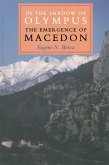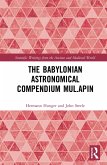This is the chronicle of pre-Indo-European Europe, a realm of shadowy figures and forgotten tongues, where the ancestors of the Basques, the Iberians, the Etruscans, and countless others held sway.
Our journey begins in the depths of the Paleolithic, where hunter-gatherers roamed the primeval forests and adorned cave walls with breathtaking artistry.
We witness the rise of the megalith builders, those enigmatic architects of Stonehenge, Carnac, and Malta, whose colossal creations still inspire awe and wonder.
We encounter the Minoans of Crete, their vibrant civilization flourishing amidst the azure waters of the Aegean, their palaces echoing with the whispers of a language yet undeciphered.
As the Bronze Age dawns, we see the first encounters between the indigenous peoples and the Indo-European newcomers, their interactions shaping the linguistic and cultural landscape of Europe.
The Iberians of the Iberian Peninsula, the Tartessians of the southwestern coast, and the Nuragic civilization of Sardinia each leave their mark, their legacies enduring despite the relentless advance of Indo-European languages and cultures.
The Iron Age brings new challenges, as the Celts sweep across Europe, their iron swords and chariots transforming the art of warfare.
Yet, the pre-Indo-European peoples do not simply vanish.
The Lusitanians of Iberia, led by the legendary Viriathus, fiercely resist Roman expansion, while the Ligurians of the northern Mediterranean coast defend their rugged terrain with tenacity.
In the heart of Italy, the Etruscans rise to prominence, their sophisticated civilization influencing the nascent Roman culture. And in the far north, the Picts of Scotland, their bodies adorned with enigmatic tattoos, defy the advances of both Romans and Anglo-Saxons.
But the inexorable tide of Indo-European expansion gradually reshapes the continent. Languages fade, customs evolve, and cultures merge, leaving behind a complex tapestry woven from both continuity and change.
Yet, the echoes of pre-Indo-European Europe endure, whispering through the ages in place names, loanwords, genetic markers, and the enduring presence of the Basque language, a solitary sentinel of a lost world.
Dieser Download kann aus rechtlichen Gründen nur mit Rechnungsadresse in A, B, CY, CZ, D, DK, EW, E, FIN, F, GR, H, IRL, I, LT, L, LR, M, NL, PL, P, R, S, SLO, SK ausgeliefert werden.









